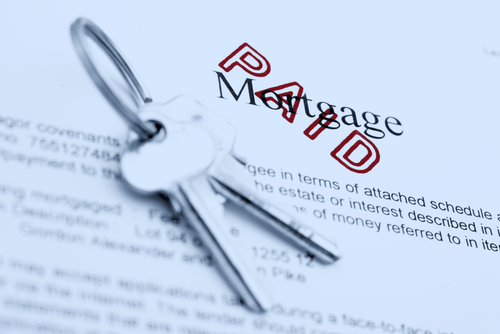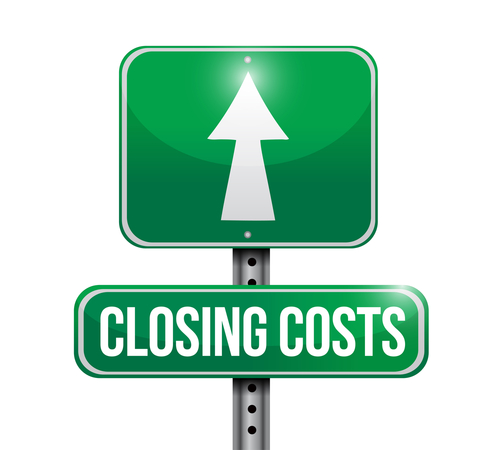
It is important to understand how different mortgage programs work. A mortgage loan officer or broker can point you in the right direction. And after getting a clear picture of your financial situation, your loan specialist may recommend a VA home loan. These loans are ideal because they feature no money down and you don't have to pay private mortgage insurance—a major plus if you have limited resources. Here are five steps to buying a home with a VA loan. Determine eligibility for this program VA home loans are one of the cheapest mortgages available. But unfortunately, not everyone qualifies for these loans. VA home loans are guaranteed by the U.S. Department of Veterans Affairs. But to be eligible for financing, you have to be a veteran, active-duty military, a reservist or the spouse of an eligible service member. Before you can apply for a VA home loan, your lender will confirm eligibility for this program. Lenders offering VA financing can assess VA records electronically to confirm your service record. Apply for a loan In many cases, a lender can… Read more

Regardless of whether retirement is 10, 20 or 30 years off in the future, the earlier you start planning, the better off you'll be financially. Planning can include enrolling in an employer’s 401(k) or opening an individual retirement account. And with regard to expenses, you may set a goal of paying off your mortgage before retiring. Some may argue that rushing to pay off a mortgage before retirement isn’t the best idea. Keeping a mortgage means the ability to write off mortgage interest, which can reduce your taxable income now and once you retire. Rather than pay off a home, some also argue that it is better to contribute extra funds to a retirement account and build a bigger nest egg. Only you can decide the best approach for your money. However, paying off your mortgage doesn't interfere with retirement planning, eliminating this expense could be the smartest move to secure your future. The truth of the matter is, your income is likely to decrease after you retire. If you bring a mortgage into retirement, the expense could be too… Read more

There’s no rule that says spouses have to put both of their names on a mortgage. It’s perfectly okay for only one spouse to apply for a home loan. In this case, both names can still appear on the deed. If only one spouse works and the other is a stay-at-home dad or mom, the question of who will apply for the mortgage may not be up for debate. But what if both spouses work and generate income? Is it better to have one or both names on the loan? The answer depends on the situation Benefits of a Joint Mortgage Before deciding whether to have both your names on the mortgage, you need to understand the benefits of a joint mortgage. When applying for any type of loan, including a mortgage, qualifying amounts are largely based on a borrower(s) income. In the case of a mortgage loan, the house payment can be no more than 28% to 31% of a borrower’s gross monthly income. This percentage includes principal, taxes, interest, insurance and homeowner association fees. One of the perks… Read more

Understanding mortgage interest is important when buying a house. But some borrowers don’t realize the impact interest rates have on financing. Getting an affordable mortgage isn’t only about the sale price of a home, it also has a lot to do with your interest rate. Interest is the cost of borrowing money. A low rate can result in cheaper monthly payments and reduce how much you pay over the life of the loan. With regard to borrowing money, there are two costs you need to understand: interest and APR. You may use these terms interchangeably, but there are slight differences. Interest is the cost of borrowing the principal, whereas the annual percentage rate (APR) is the annual cost of borrowing money and includes the interest rate and fees (broker fees, mortgage insurance and points, etc.) Economic Factors That Influence Rates Whether you’re shopping for your first mortgage or you’re a repeat buyer, you may already know that mortgage rates can fluctuate on a day by day basis. Banks and other mortgage lenders originate home loans, but in most cases, these… Read more

Selling a home can result in a big payday. But although profit from a sale can increase your net worth and provide a nice down payment for your next home, it’s important to understand the costs associated with selling a home. Real estate transactions can be expensive for both buyers and sellers. As the seller, your real estate closing attorney will provide a HUD-1 settlement statement a few days prior to closing which explains your costs. The good news is that settlement expenses are typically deducted from the profit. As long as you have enough home equity, you don’t have to dip into your bank account. If you don’t have sufficient equity, you’ll need to bring cash to the closing table. Here is a list of costs you can expect as a home seller. Real estate commission As the seller, it's your responsibility to pay the realtor commission. The typical commission for real estate transactions is 6% of the sale price split evenly between the buyer’s agent and your agent. You might be able to negotiate a lower commission, such… Read more







